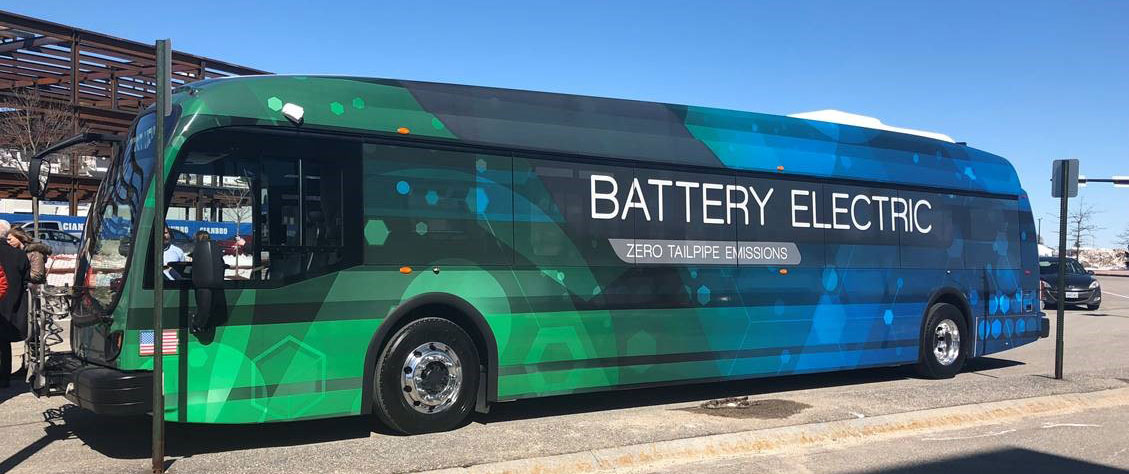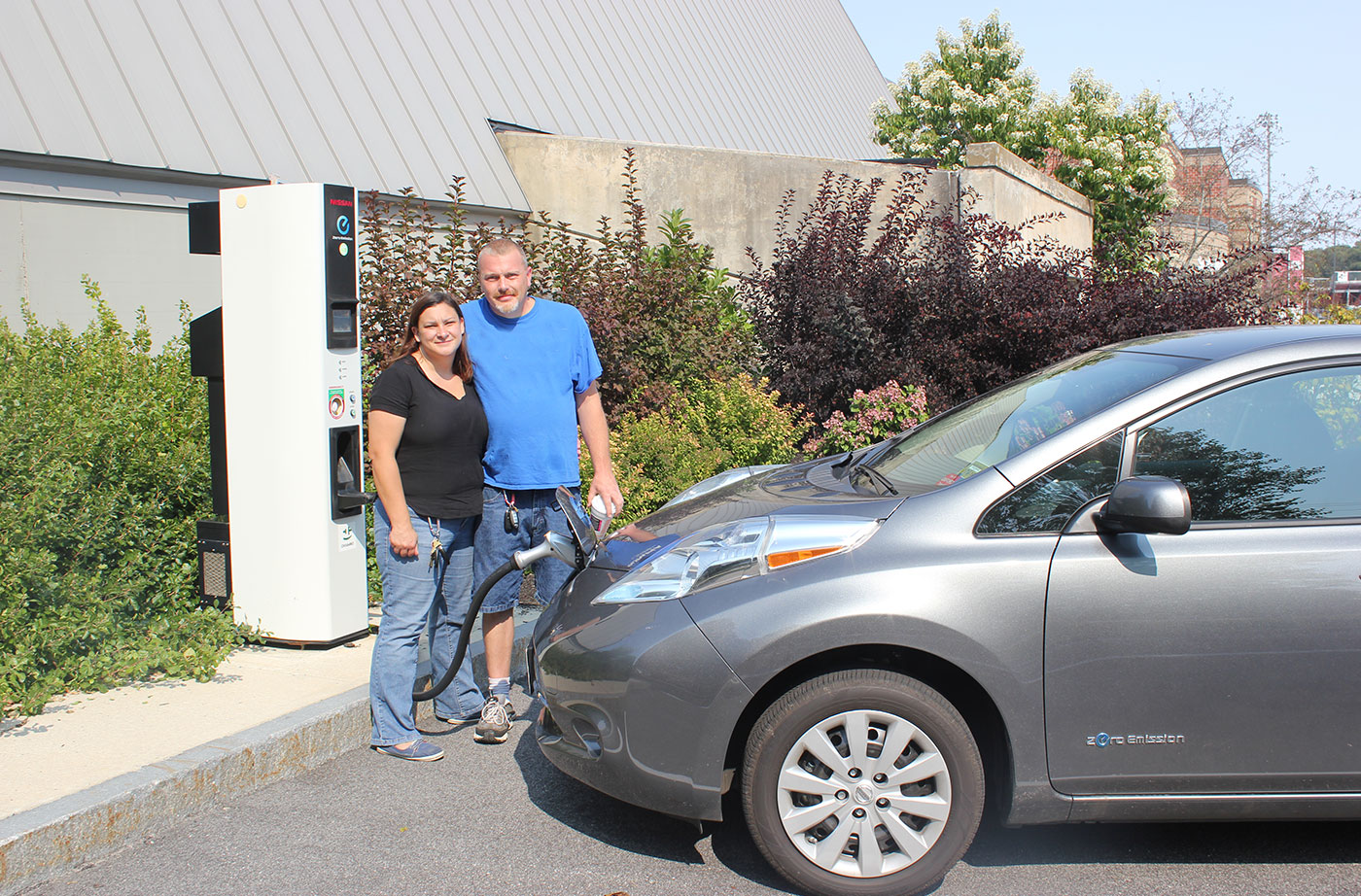Right now, 12 states in the Northeast and Mid-Atlantic are developing a regional Transportation & Climate Initiative (TCI) that could help create more affordable and healthier transportation options for Mainers and lead to less pollution from cars and trucks.
Today the states released a draft Memorandum of Understanding (MOU) and results of economic modeling on the options they are considering. This puts us a step closer to addressing critical challenges and builds on a track record of success in regional cooperation.
This is great news for Maine. As a rural state where getting where you need to be can be difficult, expensive, and frustrating, TCI would give our communities the funds to invest in solutions that reduce pollution, expand public transportation opportunities, increase electric vehicle charging, and make our communities safer for walking and biking.
1. Getting around Maine is more difficult than it needs to be.
The only options available to many of us are often costly, time-consuming, and not especially healthy, even before you add in the problem of climate change. We’re not alone in facing these challenges. People across the region feel stuck with a transportation system without good choices.
- Public transit options either don’t exist or are extremely limited for those who don’t own a car, can’t drive, or want to drive less.
- Too often seniors and low-income Mainers, especially in rural areas, simply can’t get to where they need to be, whether to a grocery store or medical appointment.
- Traffic congestion on local roads and highways is getting worse and wastes our time.
- Walking and biking can be difficult or even dangerous in some areas, due to the absence of safe shoulders or sidewalks.
- The gas and diesel that fuels our cars and trucks is the top source of carbon pollution in Maine and contributes to serious health problems like childhood asthma.
- New housing, stores, schools, and businesses continue to be developed too far from downtowns and service centers, making for more and more driving.
- The high cost of operating one or more vehicles drain our wallets, and the $3 billion that Maine drivers spend on fuel every year doesn’t stay here. Instead, it’s sent out of state to large multinational corporations.
Despite these challenges, we know that Mainers are desperate for solutions that can help them move more efficiently and pollute less. For example, ridership on Portland’s buses is up 27% over the past five years and Presque Isle launched limited bus service after transportation accessibility was identified by residents as a serious issue.
“Getting around a state as large as Maine can be more difficult than it needs, leaving people feeling stuck without good choices. TCI is our region’s best opportunity to give people a wider range of options that are more affordable, reliable, and reduce pollution. By actively participating in TCI, Maine can ensure solutions like clean cars and trucks, expanded transit, safer bike and pedestrian infrastructure, meet the needs of both rural and urban populations.”

2. TCI would give Mainers more choices.
Imagine a future where you could more easily ride the bus with your friends and co-workers, get to a doctor’s appointment or the grocery store even if you don’t have a car, and be able to safely walk or bike through your town.
TCI could deliver solutions like these through a clean transportation fund that requires oil companies to contribute funds based on the pollution they cause. Money from the fund could be used to invest in different solutions that benefit rural and urban communities.
We know this approach can be successful because TCI builds on a similar regional initiative that has effectively reduced energy costs for Mainers and limited carbon pollution from power plants. The Regional Greenhouse Gas Initiative (RGGI) also uses a clean energy fund with payments from dirty power plants, in that case going to Efficiency Maine for weatherization, heat pumps, and other energy efficiency measures have saved businesses, homes, and industry money on heating and electrical bills. Both RGGI and TCI harness the power of regional cooperation and coordination.
3. TCI would give our communities the tools to invest in healthier, more affordable, and more reliable solutions.
The clean transportation fund provided by TCI would give the state, regional planning offices, and local communities the tools and resources to invest in local, affordable, reliable, and healthy solutions for getting around. These could include:
- Expand affordable and reliable transit services like buses, shuttles, and vanpools to help us drive less.
- Support broadband infrastructure to strengthen local economies and reduce how much we need to drive by making it easier to work from home.
- Provide rebates for electric trucks and cars, which can save Mainers hundreds of dollars a month on fuel and maintenance costs, and grants for towns and businesses to install electric car chargers to make it easier for drivers to charge their cars when they are away from home.
- Promote more efficient movement of freight through Maine to reduce traffic congestion and air pollution.
- Invest in our communities to make walking and biking safer and more convenient.
Under the status quo, oil companies make billions of dollars annually from Mainers and are fighting to block progress toward a cleaner transportation future. We know from polling that strong majorities of Maine people have consistently supported a clean energy transition that brings more options and less pollution. That’s why the Transportation & Climate Initiative is so important. TCI holds the promise of making smart improvements that would make it easier for Mainers to get around.

This is great! What are the next steps?
The states are working together on a basic framework, including how much carbon pollution can be reduced over the coming decade. That is a critical question because climate scientists globally are raising the alarm that we must act boldly and swiftly. However, it will be up to individual states to decide their priorities for a clean transportation fund. That’s an opportunity we can’t afford to miss.
—Sue Ely
Download a fact sheet about the Transportation & Climate Initiative and its benefits for Maine.











Leave a Reply